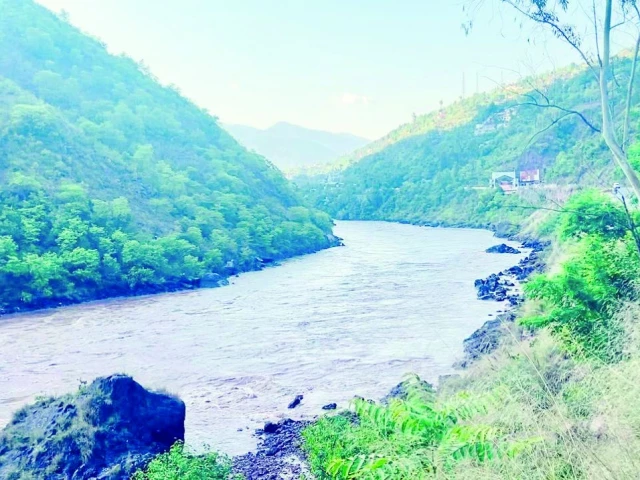Sudden water surge in Jhelum baffles all
The river snakes its way from Anantnag district in IIOJK into Pakistan through Uri, Hattian Bala and Chakothi.

India, which had earlier been blowing hot and cold following the Pahalgam false-flag operation, appeared to have been rudely awakened from its lofty dream of blocking Pakistan's water on Saturday, instead releasing a surge into the Jhelum River in a fit of panic.
While New Delhi had rattled sabres by threatening to withhold Pakistan's share of water under the Indus Waters Treaty — a move experts dismissed as legally hollow and logistically impractical — it ended up unleashing a furious surge into the Jhelum River instead.
Nonetheless, the sudden release triggered a high-level flood, causing fear and havoc among local communities overnight.
Already grappling with the twin burdens of a blistering heatwave and the heavy hand of climate change, Pakistan faced the first signs of what many have termed "hydro terror".
The river snakes its way from Anantnag district in IIOJK into Pakistan through Uri, Hattian Bala and Chakothi.
In a race against time, the Muzaffarabad administration declared a water emergency as the rising waters caught residents flat-footed.
Following the situation, mosque announcements were made across riverside settlements, warning people to take immediate precautionary measures, while the administration launched emergency safety protocols.
Reports confirmed that the Jhelum River is currently experiencing a high-level flood, with water levels soaring 7 to 8 feet above normal. Authorities have issued an alert, urging citizens to stay away from the riverbanks to avoid any danger.
Experts said India's abrupt release of water towards Pakistan laid bare the contradictions between the Modi government's rhetoric and its actions. They noted that New Delhi's claims of blocking Pakistan's water remain a far cry from reality.



















COMMENTS
Comments are moderated and generally will be posted if they are on-topic and not abusive.
For more information, please see our Comments FAQ